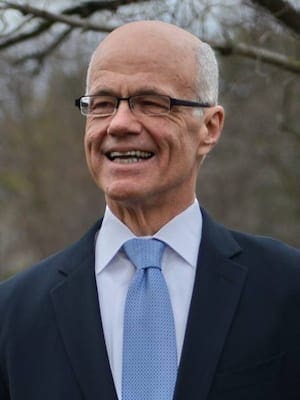I sat for a while on a bench near the Asheville, North Carolina, courthouse after a long walk around town late one afternoon.
Almost directly in front of me on the stone-paved area in front of the amphitheater stage was a group of five younger adults—three men and two women—and two good-sized dogs, both adorable mutts.
Of this group of seven, only the two dogs seemed happy, and only the two dogs were quiet enough not to be heard by everyone else nearby.
They were sharing, or meant to be sharing, food from a grocery bag, but there was a good deal of fussing about who took what and how much of it they took, who had paid for which items, and who had forgotten—again—to buy what he was supposed to buy.
The fellow who had forgotten was also the one who seemed to be taking the most.
They had an MP3 player with a very good—too good for the rest of us—speaker, but they never let a single song play all the way to the end.
One of the young women had a Frisbee in her hands, but she couldn’t convince any of the others to venture onto the lawn to throw it with her.
One of the men didn’t just shake his head “no” or shrug his shoulders and keep his seat as the others had done. He growled an angry “no” at her.
I got the feeling that this frustrated exchange wasn’t the only one that they’d had that day.
After they had eaten and after they had given up on finding music they could agree to listen to, and after they made it clear that they weren’t going to be tossing the Frisbee around, they sat and talked.
Only it wasn’t really a talk; it was an endless argument about things that didn’t seem to me to be worth the breath they spent on them.
The dogs slept nearly the whole time, and it wasn’t the only time in my life I’ve envied a dog’s ability just to plop down and go to sleep.
At first, these five people simply irritated me because they were obnoxiously loud.
After being irritated, though, I was sad for them: sad, because I wondered about the hurt, brokenness, jealousy, financial pressure, boredom, failures or homesickness that each of them brought with them to that picnic that had turned sour.
Could any of them admit to himself or herself what was really going on? And was there any reason to believe that the group could find some emotion other than anger to give them energy and bind them together?
North and east of them, in the grass next to a local tavern, there was a group of around 30 adults and children, playing and dancing to what sounded like polka music.
A couple of men, maybe a grandfather and grandson, had giant bubble wands. They were releasing massive bubbles into the breeze, which lifted and carried them just far enough for some of the young children to chase them and try to burst them as they began their descent to the ground.
A small group sat, talked and served ice cream from a couple of churns. Some men, on the edge of the crowd, played bocce ball, or tried to, but the children chasing bubbles made it quite a challenge.
At one point, someone took a microphone attached to a small amplifier and made a three- or four-minute talk. It wasn’t in English, so I’m not sure what they said.
Maybe the group was a family reunion, and he talked about how glad he was that this many members of the family could get together and how important it was for all of them to remember the ones who still lived far away.
Maybe it was a church group, and he welcomed everyone to a family that doesn’t depend on flesh and blood but on bonds of faith and love. I don’t know.
I do know that as I watched these two groups—the five young adults and two dogs, and the 30 or so immigrants from I’m-not-sure-where—I kept thinking about a statement made by French poet Paul Eluard: “There is another world but it is in this one.”
These two groups were in the same place but in different worlds. They were breathing the same air, but not at all having the same experience.
Anger fueled a smoldering fire of conflict in one group; mutuality brightened a festival of happiness in the other.
They were only 100 yards away from each other, but they might as well have been on opposite sides of the earth.
I believe that Jesus is an entryway to another and truer world. In that world, which is in this one, grace never gives out, mercy never comes to an end, love is an inexhaustible river, and joy is an inextinguishable flame.
In that world, life becomes filled with wonder and surprise, with marvels and mysteries, with gifts and delights.
 Guy Sayles is pastor of First Baptist Church of Asheville, N.C. A version of this column first appeared on his blog, From the Intersection, and is used with permission.
Guy Sayles is pastor of First Baptist Church of Asheville, N.C. A version of this column first appeared on his blog, From the Intersection, and is used with permission.

